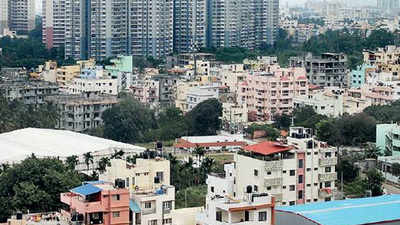The Indian Express 14.08.2013
BMC engages MU to conduct study on taxation in slums
economics department of Mumbai University (MU) to conduct a study on
taxation in slum areas after rolling out the new property tax regime
based on capital value in Mumbai this year.
In addition to a thorough research of the slum areas and the
probable methods of taxation, MU is expected to study the tax models for
slums in other parts of the world and suggest a new system that can be
incorporated in Mumbai. Revenue collection from slum areas, which
constitutes over 60 per cent of Mumbai’s total population, is estimated
to bring in roughly Rs 1,000 crores for the BMC.
“According to the law, the municipal body must collect tax from
all structures in the city – be it legal or unauthorised. We have now
asked the economics department of Mumbai University to conduct a study
for us on how we can implement the new tax. They will respond to our
invitation in the next 15 days. We need to know if they can do manage
the full scope of work. For unauthorised constructions on originally
authorised buildings, we have asked former BMC official S Agarkar from
the assessment and collection department, to form a taxation plan,” said
additional municipal commissioner Rajeev Jalota.
While developing the taxation model, MU will not only have to see
how taxes can be implemented based on regular factors such as the ready
reckoner rate and plot size but will also have to consider other
aspects such as the quality of civic amenities available for residents
of slum areas. “This includes evaluating the drainage system available,
the road condition, and the water connections that every household has
access to. Based on these facilities MU will suggest a tax policy which
will be further discussed and finalised following due process in the
BMC,” Jalota said.
It will be researched how the collection will be carried out. “Manual
collection would need more than 1,000 persons and the BMC cannot spare
such manpower. We will either have to appoint a collection agency or
look for other means of collection such as through phone bills,” a
senior official in the assessment and collection department said. He
added that the corporation is also looking at possibilities of linking
the tax model to the Aadhar Card system and individual bank accounts.
The study, and later implementation of the finalised tax policy
for unauthorised structures will take another year. “Six months to carry
out the study and another six months to form the policy for
implementation based on the findings. Despite the debates that are bound
to crop up, slum people may welcome this move as it brings legitimacy
to their residence. Unlike water tax which is billed to a group,
property tax is for every household,” said Jalota. The arrears on
property tax for slum properties is likely to be waived off, he added.
“It may be too much of a burden for the poor. We are considering
collecting the tax monthly to ease the pressure of the annual amount- it
will be a considerably lesser to handle every month,” Jalota said.

